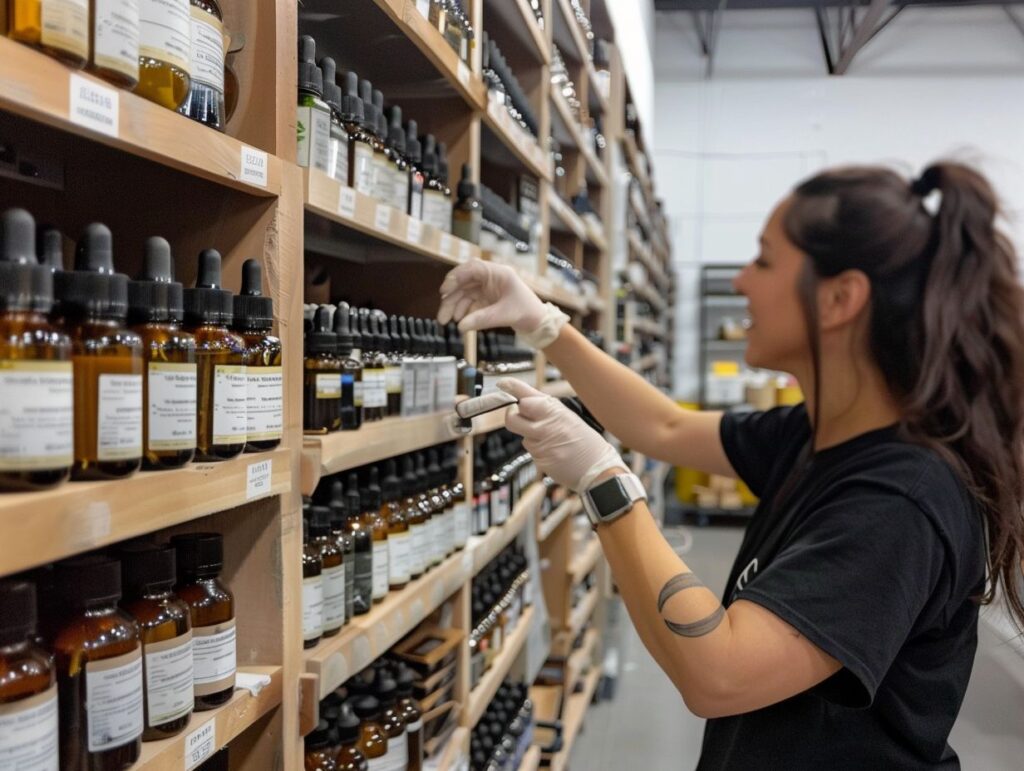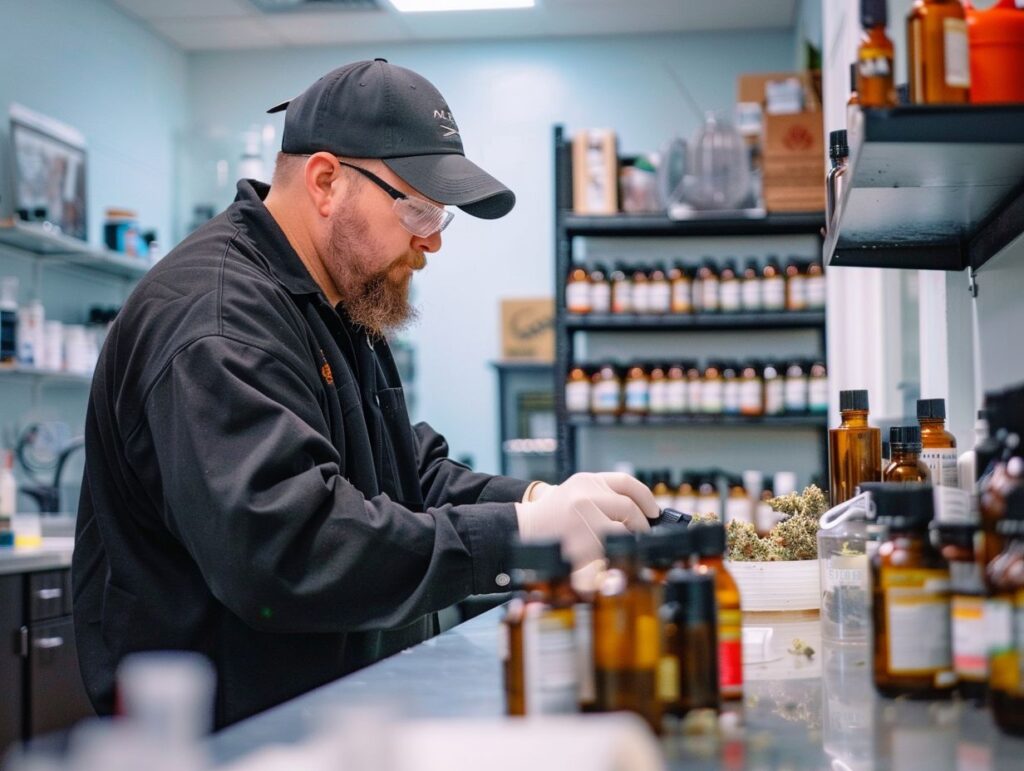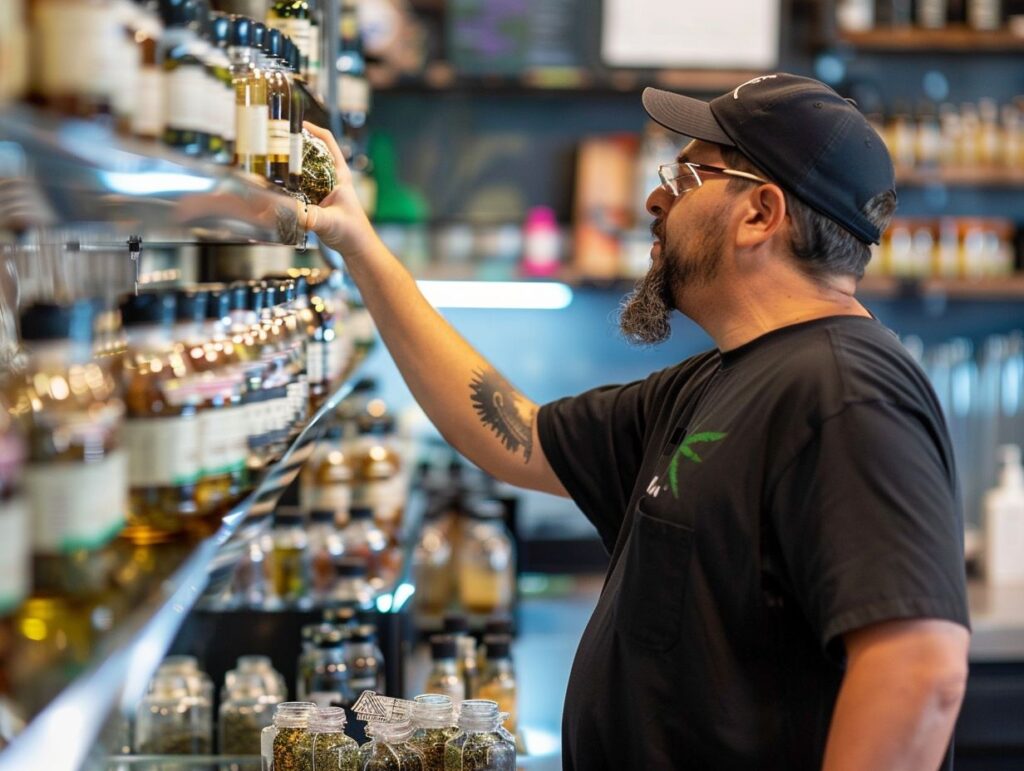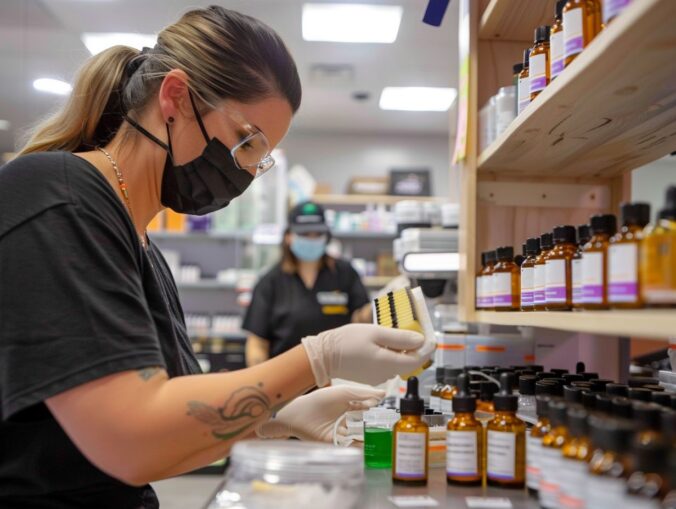Curious about the ins and outs of Texas dispensaries and their CBD products? From legal requirements and testing procedures to licensing and quality control measures, this article will cover everything you need to know about how Texas dispensaries ensure compliance with state laws.
Explore the steps involved in producing CBD products, the consequences of non-compliance, and the resources dispensaries use to stay updated on regulations.
Get ready to dive into the world of Texas dispensaries and CBD regulation in the Lone Star State.
What Are Texas Dispensaries?
Texas dispensaries refer to the establishments authorized to sell CBD products in compliance with state laws and regulations. These dispensaries play a crucial role in providing consumers with access to a variety of CBD products for medicinal and recreational purposes.
From edibles and tinctures to topicals and concentrates, Texas dispensaries offer a wide range of CBD-infused products to cater to diverse preferences and needs. By adhering to state laws, these dispensaries ensure that the products they provide are of high quality and meet safety standards.
The significance of compliance with these regulations cannot be understated, as it not only protects consumers but also promotes transparency and trust within the CBD industry. Dispensaries serve as hubs of knowledge, guiding customers on the usage and benefits of different CBD products, contributing to an informed and responsible CBD community.
What Is CBD And How Is It Regulated In Texas?
CBD, short for cannabidiol, is a compound derived from the hemp plant known for its therapeutic properties. In Texas, CBD is regulated by strict state laws and regulations to ensure that products are compliant and safe for consumer use.
The extraction process of CBD involves using various methods such as CO2 extraction or solvent extraction to obtain the pure CBD compound from the hemp plant. Once extracted, CBD is used in various products like oils, tinctures, edibles, and creams, which are popular for their potential health benefits such as reducing anxiety, relieving pain, and improving sleep.
These products are increasingly gaining popularity in Texas for their therapeutic effects, leading to a growing market. It’s important to note that in Texas, specific regulations govern the production and distribution of CBD products, ensuring quality and safety standards are met.
What Are The Legal Requirements For CBD Products In Texas?
The legal requirements for CBD products in Texas encompass strict guidelines on THC content, potency levels, and the need for certificates of analysis to verify product quality and compliance with state regulations.
These regulations are in place to protect consumers and maintain product safety standards. In Texas, CBD products must contain less than 0.3% THC to be considered legal. Labeling specifications are crucial, requiring detailed information on ingredients, dosage, and proper usage instructions. Certificates of analysis, commonly referred to as COAs, play a vital role in this process. They provide detailed information about the product’s chemical composition, ensuring transparency and compliance with state laws regarding CBD products.
What Are The Testing And Labeling Requirements For CBD Products In Texas?
Testing and labeling requirements for CBD products in Texas involve rigorous lab testing procedures to assess product safety and quality. Proper labeling is essential to provide consumers with accurate information about the product contents and usage.
These testing procedures typically include analyses for potency, pesticides, heavy metals, and microbial contaminants to ensure that the CBD products meet regulatory standards. By conducting thorough testing, manufacturers can guarantee the safety and quality of their products, which in turn helps to build consumer trust in the industry.
Accurate labeling not only informs consumers about the CBD concentration and dosage recommendations but also highlights any potential allergens or ingredients that users should be aware of. These requirements play a crucial role in promoting transparency within the CBD market and ensuring that consumers have access to safe and reliable products.
How Do Texas Dispensaries Ensure Compliance With State Laws?
Texas dispensaries ensure compliance with state laws through meticulous dispensary operations, efficient inventory management practices, and the appointment of a compliance officer responsible for overseeing adherence to legal requirements.
The operational aspects of dispensaries play a crucial role in ensuring a smooth and legally compliant operation. This includes managing product sourcing, quality control, customer service, and maintaining a secure environment for both employees and customers.
Efficient inventory management is essential to monitor stock levels, prevent waste, and ensure products are within expiration dates. Compliance officers are tasked with staying updated on regulations, training staff on compliance procedures, conducting audits, and keeping detailed records to demonstrate compliance with state laws and regulations.
What Are The Steps Involved In The Production Of CBD Products In Texas Dispensaries?

The production of CBD products in Texas dispensaries involves meticulous steps such as ensuring traceability of sourced hemp, cultivating high-quality hemp plants, and implementing stringent quality control measures throughout the manufacturing process.
Once the hemp plants are ready for harvest, they undergo careful extraction methods to obtain the CBD oil. This extraction process typically involves using specialized equipment to isolate the beneficial compounds from the plant material. Maintaining consistency in extraction techniques is crucial to ensure the purity and potency of the final product. Quality control checkpoints are strategically placed at various stages to monitor the product’s integrity, and adherence to industry standards is strictly followed to guarantee the safety and efficacy of the CBD products.
How Do Texas Dispensaries Obtain And Maintain Proper Licensing?
Texas dispensaries obtain and maintain proper licensing by submitting comprehensive documentation to regulatory authorities, implementing stringent compliance measures, and ensuring ongoing adherence to legal requirements.
These procedures are crucial for dispensaries to operate within the boundaries of the law and ensure the safety and well-being of consumers. The necessary documentation typically includes detailed business plans, security protocols, financial records, and proof of adherence to zoning regulations. By meeting these requirements and consistently complying with state regulations, dispensaries can continue operating legally and contribute to a thriving and transparent cannabis market in Texas.
What Quality Control Measures Are In Place To Ensure Compliance With State Laws?
Quality control measures in Texas dispensaries encompass rigorous product testing, appropriate packaging practices, and adherence to specific product specifications to ensure compliance with state laws and regulations.
Product testing is a crucial step in quality control, involving thorough analysis of potency, contaminants, and terpene profiles to guarantee safety and efficacy. Packaging requirements are also meticulously followed, ensuring that products are labeled correctly and securely sealed to prevent tampering or contamination. Meeting product specifications is not only essential for legal compliance but also for maintaining consumer trust and confidence in the consistency and quality of cannabis products available in the market.
What Are The Consequences Of Non-Compliance With State Laws?
Non-compliance with state laws in Texas dispensaries can lead to enforcement actions, significant penalties, and mandatory compliance audits to rectify violations and ensure future adherence to legal requirements.
These enforcement actions can range from fines and temporary closure of the dispensary to even revocation of its operating license. The penalties imposed for non-compliance serve as a deterrent to ensure that dispensaries adhere to the stringent regulations in place.
In addition to financial repercussions, regulatory breaches can tarnish a dispensary’s reputation and trust with customers. To address these violations, corrective measures such as implementing robust compliance programs, staff training, and conducting internal audits are essential.
By proactively addressing regulatory concerns, dispensaries can mitigate the risks associated with legal violations and uphold their commitment to legal compliance.
What Are The Penalties For Selling Non-Compliant CBD Products In Texas?
Selling non-compliant CBD products in Texas can result in severe penalties, necessitating the implementation of robust compliance programs, the involvement of a legal team, and the adherence to stringent compliance standards to rectify violations.
Businesses that fail to comply with regulations may face fines, license revocation, or even criminal charges. To avoid such consequences, companies must establish comprehensive compliance programs that outline procedures for product testing, labeling, and documentation. Legal teams play a crucial role in ensuring that these programs are in line with state and federal laws, providing guidance on best practices and potential risks. By maintaining high compliance standards, companies not only protect themselves from legal repercussions but also build trust with consumers and regulators.
How Do Texas Dispensaries Handle Product Recalls?

Texas dispensaries handle product recalls with utmost transparency, thorough compliance documentation, and comprehensive compliance reviews to ensure that all affected products are identified, removed, and corrective actions are implemented to prevent future occurrences.
During a product recall process, it is crucial for dispensaries to establish clear procedures for identifying and segregating affected products swiftly. Transparency plays a vital role in informing customers about potential risks, and documentation is essential for compliance with regulatory requirements.
Conducting thorough compliance reviews post-recall helps in evaluating the effectiveness of corrective actions taken and in identifying areas for improvement in the recall process.
What Resources Do Texas Dispensaries Use To Stay Updated On State Laws?
Texas dispensaries utilize various resources to stay informed about state laws, including regular regulatory updates, proactive compliance measures, and consultations with legal advisors to ensure ongoing adherence to legal requirements.
Staying updated on regulatory changes is crucial for dispensaries to operate within the bounds of the law. By being aware of any modifications to state laws, dispensaries can adjust their practices promptly to maintain compliance.
Implementing effective compliance measures is another key aspect in ensuring that operations remain in line with regulations. By establishing robust internal policies and procedures, dispensaries can mitigate risks and demonstrate a commitment to following legal guidelines.
Seeking legal advice further enhances a dispensary’s ability to navigate the evolving regulatory landscape, as legal experts provide valuable insights and support in interpreting and applying complex laws.
What Government Agencies Regulate CBD Products In Texas?
Government agencies in Texas responsible for regulating CBD products enforce stringent compliance protocols, provide essential compliance resources, and work closely with state officials to monitor and enforce legal requirements within the CBD industry.
These agencies play a crucial role in ensuring that CBD manufacturers and distributors adhere to state laws, quality standards, and labeling regulations. By establishing clear guidelines and monitoring practices, they help maintain consumer safety and industry integrity. Government agencies allocate compliance resources efficiently to conduct inspections, audits, and investigations to detect any non-compliance issues promptly. Through close collaboration with state officials, these agencies uphold transparency and accountability in the CBD industry, fostering a regulatory environment that promotes public trust and confidence in CBD products.
What Industry Associations Provide Guidance On Compliance With State Laws?
Industry associations in Texas act as governing bodies, offering comprehensive compliance guidelines, maintaining compliance records, and providing valuable insights to help businesses in the CBD industry navigate and adhere to state laws effectively.
These associations play a crucial role in ensuring that companies align with regulatory requirements by establishing best practices and standards. By regularly updating and disseminating compliance guidelines, industry associations keep businesses informed about any changes in legislation or industry norms. Through their collaborative efforts, these associations also foster a strong culture of compliance within the CBD sector, emphasizing the importance of accurate record-keeping to demonstrate adherence to regulations. This proactive approach not only enhances operational efficiency but also helps in building trust and credibility with regulatory authorities.
Frequently Asked Questions
How do Texas dispensaries ensure their CBD products are compliant with state laws?

Texas dispensaries must follow specific regulations and practices to ensure their CBD products are compliant with state laws. Here are some common questions regarding this topic:
What are the state laws regarding CBD products in Texas?
Texas has strict laws regarding the sale, production, and use of CBD products. These laws are constantly evolving, so it is important for dispensaries to stay updated and compliant.
Do Texas dispensaries need a special license to sell CBD products?
Yes, Texas dispensaries must obtain a license from the Texas Department of State Health Services to sell CBD products. This license ensures that the products meet state regulations and are safe for consumers.
How do dispensaries source their CBD products?
Dispensaries must source their CBD products from licensed and registered suppliers. These suppliers must comply with state laws and provide proof of third-party lab testing to ensure the products are safe and contain the advertised amount of CBD.
What packaging and labeling requirements do Texas dispensaries need to follow for their CBD products?
According to state laws, CBD products must be labeled accurately with the name of the product, ingredients, and amount of CBD per serving. The packaging must also include warnings, usage instructions, and the name and address of the manufacturer.
How do Texas dispensaries ensure their CBD products are free from contaminants?
To ensure their CBD products are free from contaminants, dispensaries must have strict quality control measures in place. This may include regular testing of products and proper storage to prevent contamination.
What happens if a Texas dispensary is found to be non-compliant with state laws for their CBD products?
If a dispensary is found to be non-compliant with state laws, they may face penalties such as fines, license suspension, or even criminal charges. It is crucial for dispensaries to stay updated on regulations and follow proper procedures to avoid these consequences.

